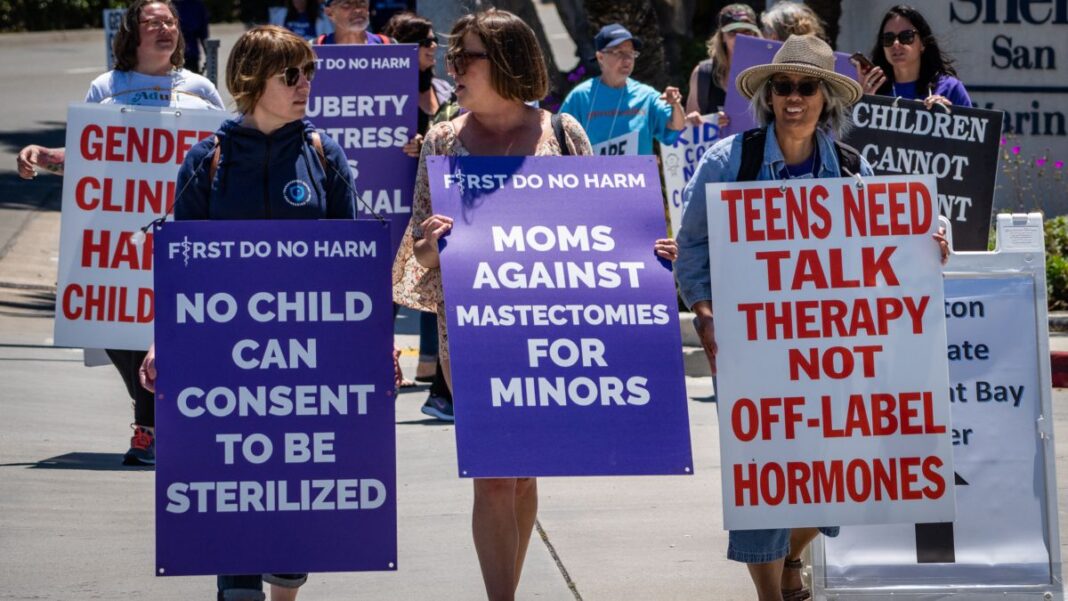Twenty-one clinicians and researchers from nine countries have signed a letter saying that the “best available evidence” doesn’t support the prevailing treatment methods of gender dysphoria, namely sex-change procedures, in the United States.
“Every systematic review of evidence to date, including one published in the Journal of the Endocrine Society, has found the evidence for mental-health benefits of hormonal interventions for minors to be of low or very low certainty,” the group of endocrinologists wrote in their letter published in the Wall Street Journal on July 13.
The medical experts took exception to the endorsement by the Endocrine Society, the professional organization for physicians who specialize in hormones, of minors receiving hormone treatments that block puberty.
The international experts were prompted to speak out after the Endocrine Society criticized an op-ed published in the WSJ on June 28. The op-ed was co-authored by Ian Kingsbury, Ph.D., and Dr. Roy Eappen, who is a member of the Endocrine Society.
The pair had criticized a recent federal court ruling that struck down an Arkansas law banning sex-change procedures for minors. The court relied on the Endocrine Society’s guidelines on sex-change procedures for minors, which were described in the ruling as widely-accepted clinical practice guidelines for the treatment of gender dysphoria.
Dr. Eappen and Mr. Kingsbury argued that the Endocrine Society’s guidelines on sex-change procedures for minors were based on “low” or “very low” quality evidence and influenced by transgender activists. They noted that concerns exist among endocrinologists about the lack of scientific support and the rush to provide irreversible treatments to young patients.
Endocrine Society Claims Criticism ‘Ignores Scientific Evidence’
Endocrine Society President Dr. Stephen Hammes hit back at the pair in an op-ed published in the WSJ on July 4.
Dr. Hammes wrote that the pair ignore “scientific evidence and conclusions” reached by “reputable medical organizations,” such as the American Medical Association and the American Academy of Pediatrics.
Dr. Hammes defended the Endocrine Society’s clinical practice guideline, which he said was developed through a rigorous and transparent process based on extensive evidence and input from its 18,000 members.









